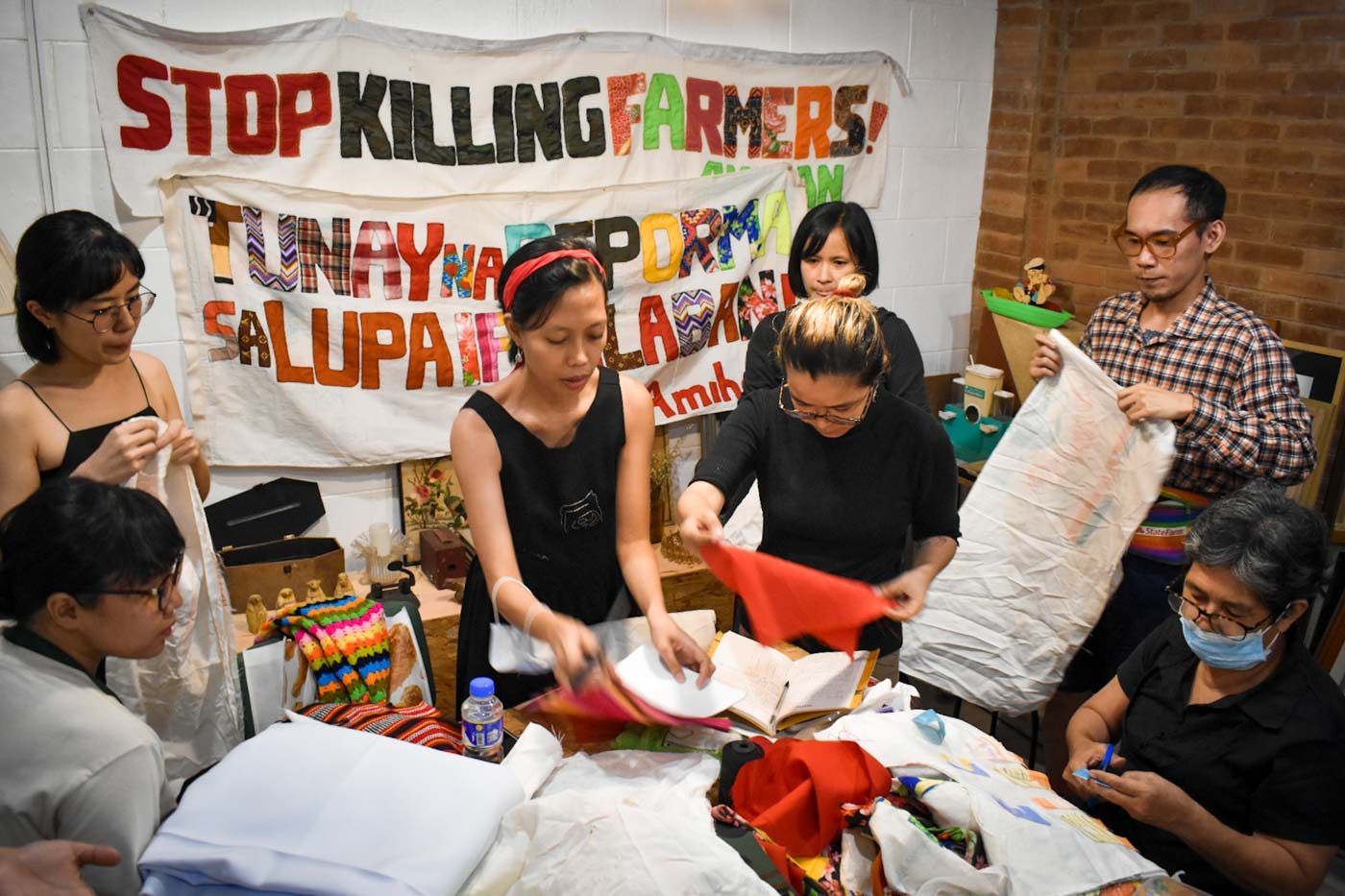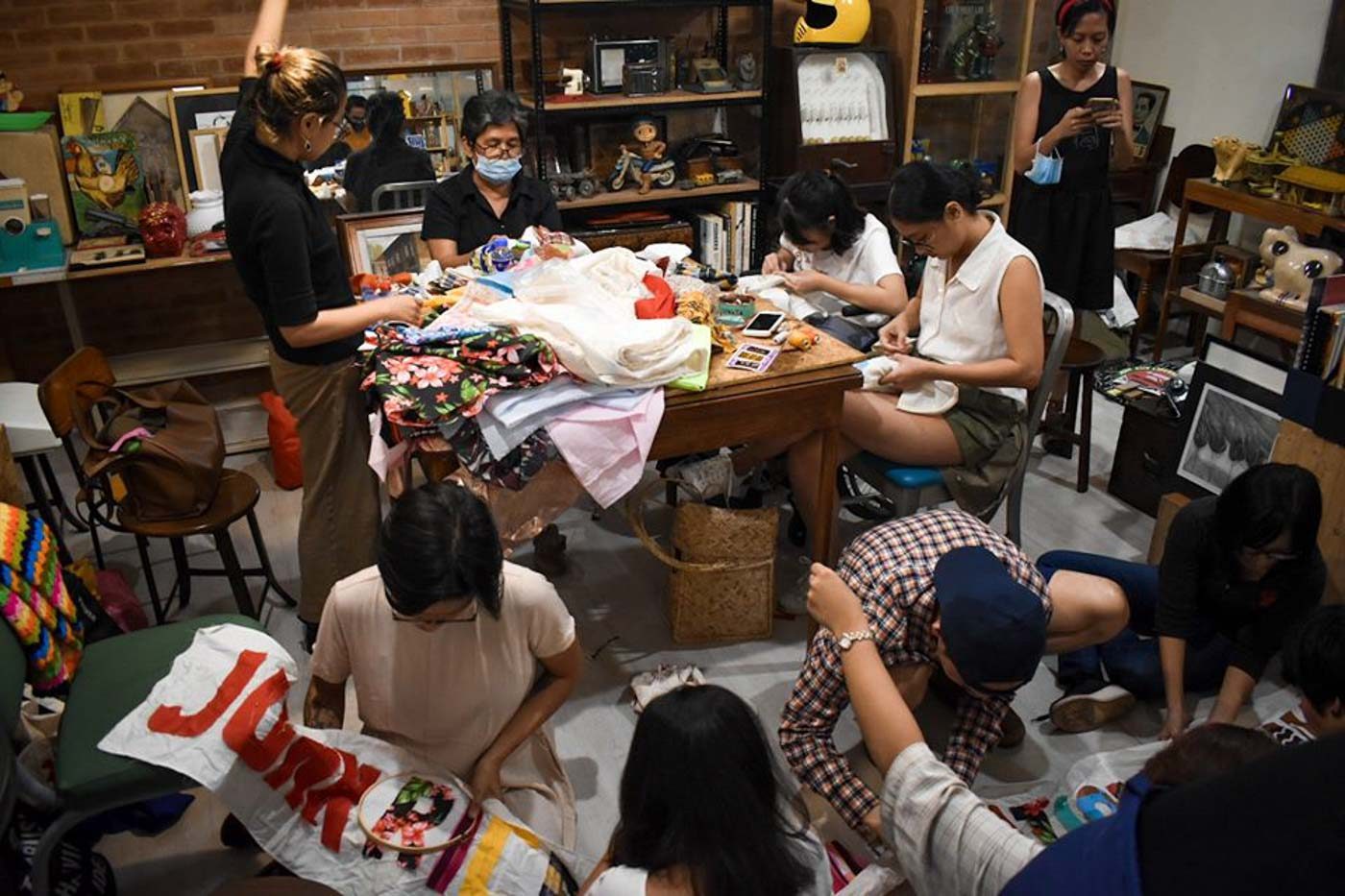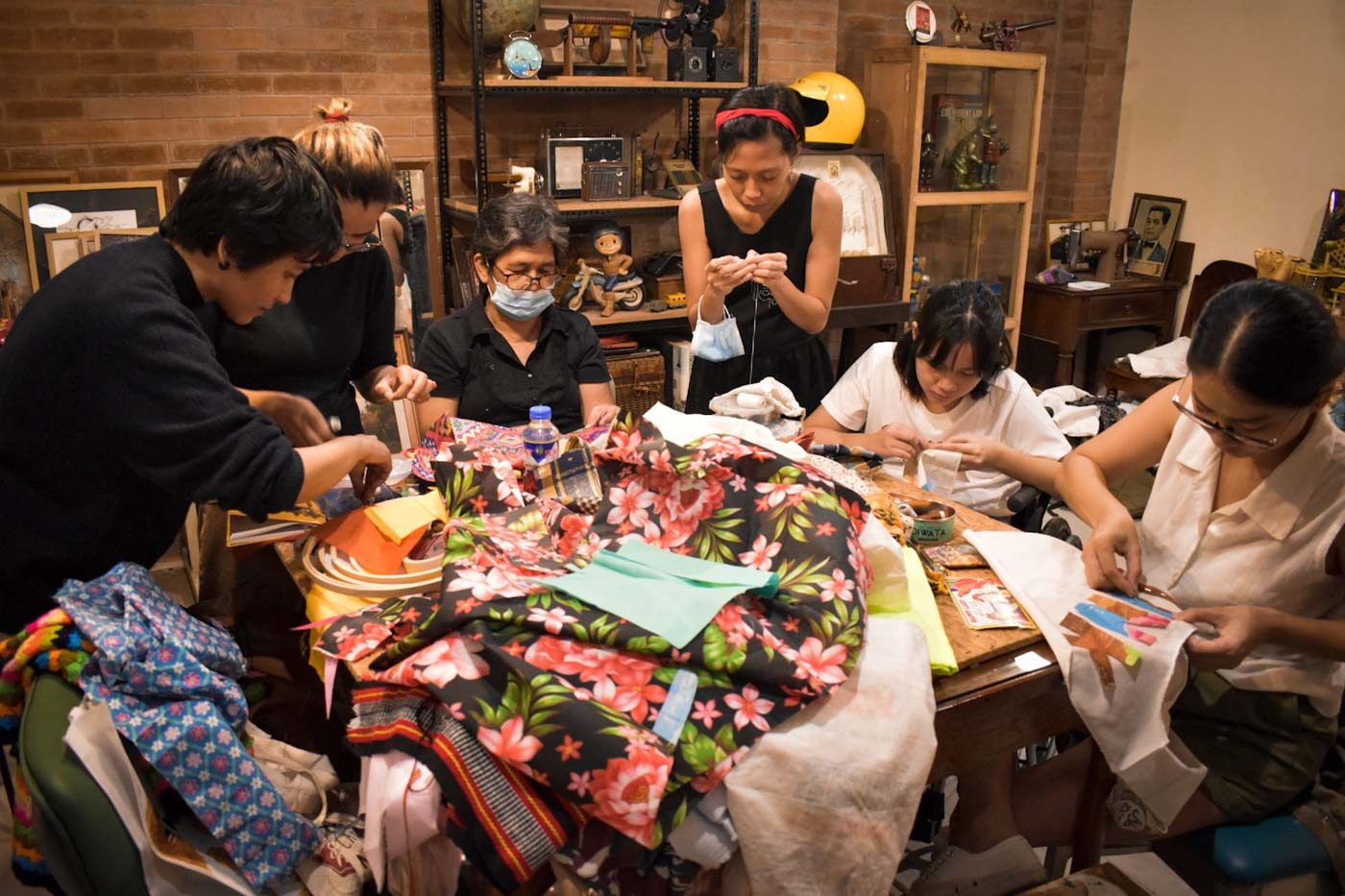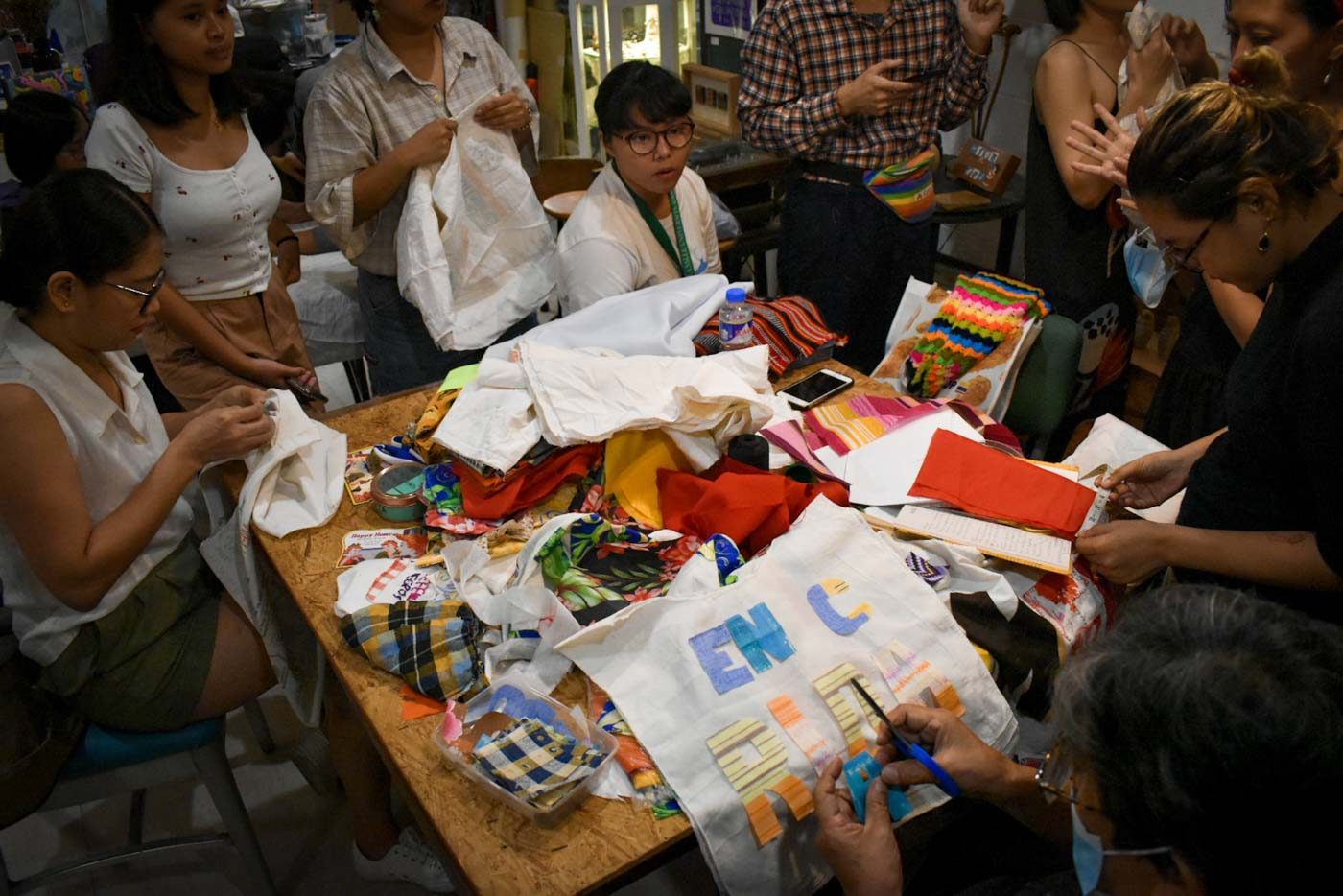SUMMARY
This is AI generated summarization, which may have errors. For context, always refer to the full article.

MANILA, Philippines– Weaving together advocacy and hobby, several Filipinos teach stitching while discussing the many struggles experienced by farmers today.
It’s through stitching that some of these women get to release the negativity and stress they experience.
“Nagtatahi ako kapag nabuburyong na ako. Dito ko ‘binubuhos ang lahat,” said Zenaida Soriano, national chair of Amihan National Federation of Peasant Women. (I stitch when I’m stressed. It’s where I pour my emotions.)
When she is not busy coordinating with peasant women in the countryside or speaking at rallies, Soriano stitches calls, slogans, and statements on banners using retaso (cloth scraps) and katsa (flour cloth sack) from the local bakery.
On February 8, she led “Magtahi ay Di Biro: Kuwentuhan and Letter-Patching Workshop vs Rice Liberalization” at the Studio Soup Zine Library in Cubao Expo, Quezon City.
The usually quiet zine library was turned into a workshop, with around 20 young women and men sitting on the floor or standing at tables, cutting cloth or stitching on katsa, surrounded by threads and threaders, pins and needles, patterns, fabrics, scissors, and rolls of measuring tape.


The event aimed to discuss the severe effects of Republic Act 11203 or the rice tariffication law. The law lifts import restrictions on rice, a measure the government hopes will make the food staple more affordable for Filipinos.
Farmers and consumers felt the effects of the law during the first harvest season of 2019. Upon the enactment of the law, farmgate prices of local palay plummeted to as low as P7 per kilo because of the influx of imported rice. (READ: [OPINION] The price we pay when we neglect our farmers)
The farmers said there are too many cheap rice imports in the market because of rice tariffication, and retailers no longer want to buy from local producers. (READ: Butterfly effect: How rice tariffication bill affects everyone)
Having to sell their produce at low prices, farmers and peasants are unable to pay the debts they incurred to be able to plant, or even to buy their own food supply. (READ: Rice tariffication: Birth pains force farmers’ kids out of school)
Hoping to ease the hardships faced by farmers, P10 billion worth of tariff revenues will go to the Rice Competitiveness Enhancement Fund for better farm equipment and seeds. This may not be enough as the Philippine Rice Research Institute (PhilRice) came up with a study showing that rice farmers across the country have suffered about P61.8 billion in lost incomes.
It has been a year since the rice liberalization law has been implemented. Organized by the Rural Women Advocates (RUWA), “Magtahi ay Di Biro” aims to look back at 2019 and the repercussions of the rice tariffication law.
After a brief discussion by Soriano, the participants were taught how to measure, cut, and sew letters on katsa.
They collectively worked on a banner that says, “Junk rice liberalization law.” The banner will be used during the anniversary of the signing of the law on Friday, February 14, where peasant groups will lead a protest action to call for the repeal of RA 11203.


The workshop “Magtahi ay Di Biro” aims to demonstrate collective work while leading a public discussion on farmers, consumers, and the ailing rice industry of the country.
The ambitious activity weaves a spool of tasks in one afternoon: a discussion on the rice tariffication law guided by data gathered by the researchers of Amihan National Federation of Peasant Women, lessons on blanket stitching, and production of a prop material for a protest.

Soriano hopes other farmers, consumers, millers and rice stakeholders will organize similar activities, sign the petition to repeal the rice tariffication law and enact the Rice Industry Development Act (RIDA).
She added that both RIDA and the Genuine Agrarian Reform Bill prioritize the development of agriculture and provide the adequate support services and subsidy to farmers.
“Let us stand against rice liberalization, which has been threatening not only the livelihood of rice farmers but also the country’s food security based on self-sufficiency and self-reliance,” Soriano said. – Rae Rival and Faye Cura/Rappler.com
Add a comment
How does this make you feel?
There are no comments yet. Add your comment to start the conversation.